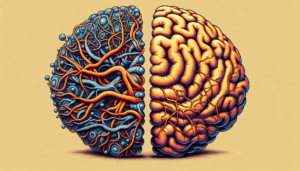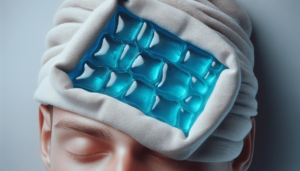Did you know that headaches can be one of the early signs of pregnancy? If you’ve been experiencing frequent headaches lately, it might be worth considering the possibility of pregnancy. While headaches are a common occurrence for many people, they can also be a subtle indication of what’s happening inside your body. In this article, we’ll explore the link between headaches and pregnancy, and how you can distinguish between a regular headache and one that may be signaling the start of your journey into motherhood. So, if you’ve been wondering about those persistent headaches, keep reading to find out if they could be an early sign of pregnancy.
Understanding Pregnancy Symptoms
Pregnancy is a beautiful journey filled with joy and anticipation, but it also comes with its fair share of challenges. One of the first hurdles that many women encounter are the early pregnancy symptoms. These symptoms can vary from woman to woman, but it’s important to recognize and understand them to ensure a healthy and happy pregnancy.
Common Early Pregnancy Symptoms
While every woman’s experience with pregnancy is unique, there are some common early signs that many women experience. These symptoms can start as early as one week after conception and can continue throughout the first trimester. Some of the most common early pregnancy symptoms include fatigue, breast tenderness, frequent urination, and mood swings. However, one symptom that often goes unnoticed or is misinterpreted is headaches.
Importance of Recognizing Early Signs
Recognizing early signs of pregnancy is crucial for several reasons. Firstly, it allows you to take necessary precautions and make important lifestyle and dietary changes to ensure a healthy pregnancy. Additionally, being aware of these symptoms can help you seek medical attention promptly if needed. Understanding the early signs of pregnancy, including headaches, can empower you to make informed decisions for both yourself and your baby’s well-being.
Headaches as a Possible Early Sign of Pregnancy
While headaches are a common occurrence for many people, they can also be an early sign of pregnancy. The hormonal changes that accompany pregnancy can have an impact on the frequency and intensity of headaches. Let’s delve into some of the reasons why headaches may occur during pregnancy.
Hormonal Changes and Headaches
During pregnancy, there is a surge in hormonal levels, primarily estrogen and progesterone. These hormonal fluctuations can affect the blood vessels in your head, leading to headaches. Additionally, the increased production of prostaglandins, which are hormone-like substances, can also contribute to headaches.
Increased Blood Flow and Headaches
Another reason why headaches may occur during pregnancy is the increased blood flow to the brain. As your body works hard to nourish your growing baby, your blood volume increases. This increased circulation can sometimes lead to headaches.
Changes in Sleep Patterns
Pregnancy often brings about changes in sleep patterns, ranging from difficulty falling asleep to interrupted sleep due to frequent urination. These sleep disturbances can trigger headaches or make existing ones worse.
Dehydration and Headaches
Dehydration is a common cause of headaches, and during pregnancy, it’s important to stay well-hydrated for both your health and your baby’s. Dehydration can occur due to morning sickness, increased urination, or not consuming enough fluids. Therefore, staying hydrated is crucial to minimize the risk of pregnancy headaches.
Differentiating Pregnancy Headaches from Other Causes
While headaches during pregnancy may be a result of hormonal changes, it’s important to differentiate them from other causes to ensure appropriate treatment and management. Let’s explore how pregnancy headaches differ from other common types of headaches.
Migraines vs. Pregnancy Headaches
Migraines are a specific type of headache characterized by intense throbbing pain, usually on one side of the head. While migraines can occur during pregnancy, they are not necessarily an early sign of pregnancy. Migraines often have triggers, such as specific foods or environmental factors, and are usually accompanied by other symptoms, such as nausea and sensitivity to light and sound.
Sinus Headaches vs. Pregnancy Headaches
Sinus headaches are caused by inflammation in the sinus passages, leading to dull pressure or pain around the eyes, cheeks, and forehead. Unlike pregnancy headaches, sinus headaches are often accompanied by congestion, facial tenderness, and postnasal drip. If you’re experiencing these symptoms along with your headache, it’s more likely to be a sinus headache rather than a pregnancy-related one.
Tension Headaches vs. Pregnancy Headaches
Tension headaches are the most common type of headache and are often caused by stress, anxiety, or muscle tension. They are typically characterized by a dull, constant pain or pressure on both sides of the head. While stress and tension can certainly play a role in pregnancy headaches, it’s important to consider other factors such as hormonal changes and blood flow when evaluating if the headache is related to pregnancy.
Other Causes of Headaches in Pregnancy
Aside from the common types of headaches mentioned above, there are other possible causes of headaches during pregnancy. These can include caffeine withdrawal, eyestrain, sinus infections, or even high blood pressure. If you’re unsure about the cause of your headache, it’s always best to consult with your healthcare provider for an accurate diagnosis and appropriate treatment.
When Do Pregnancy Headaches Typically Occur?
Understanding when pregnancy headaches typically occur can help you navigate through this phase with more ease and preparedness. Headaches can vary in timing, duration, and frequency, depending on the stage of pregnancy.
Timing in the First Trimester
In the first trimester, headaches can occur as early as one week after conception and may continue throughout this period. They are often associated with the hormonal changes and increased blood flow mentioned earlier. The severity and frequency of headaches during the first trimester can vary from woman to woman.
Headaches in the Second and Third Trimesters
As you progress into the second and third trimesters, it’s possible that your headaches may lessen or even disappear. Many women find relief from headaches during this period as their bodies adapt to the hormonal changes. However, this is not the case for everyone, and some women may continue to experience headaches throughout their pregnancy.
Recurring or Chronic Headaches during Pregnancy
While headaches are common during pregnancy, recurring or chronic headaches that significantly impact your daily life should not be ignored. If you find that your headaches are increasing in severity, frequency, or duration, it’s important to seek medical attention. Your healthcare provider can evaluate your symptoms and provide appropriate management strategies to ensure a healthy pregnancy.
How to Relieve Pregnancy Headaches
While it’s always important to consult with your healthcare provider about headache management during pregnancy, there are some general strategies that may provide relief for pregnancy headaches. Here are a few tips to consider:
Rest and Relaxation
Ensure that you’re getting enough rest and relaxation throughout the day. Pregnancy can be exhausting, and taking breaks when needed can help alleviate headaches.
Hydration and Balanced Diet
Stay hydrated by drinking plenty of fluids throughout the day. Your body needs additional fluids during pregnancy, and dehydration can contribute to headaches. Additionally, maintaining a balanced diet with adequate nutrients can also help manage headaches.
Managing Stress Levels
Stress can be a trigger for headaches, so finding healthy ways to manage stress is crucial during pregnancy. Consider incorporating relaxation techniques, such as deep breathing exercises, meditation, or prenatal yoga, into your daily routine.
Safe Medications and Remedies
If your headaches become unbearable, consult with your healthcare provider about safe medications or remedies that can provide relief during pregnancy. It’s important to remember that not all medications are safe during pregnancy, so always seek professional advice before taking any medication.
When Should You Seek Medical Attention?
While pregnancy headaches are usually harmless, there are instances when medical attention should be sought. Here are some situations in which you should reach out to your healthcare provider:
Severe and Debilitating Headaches
If your headaches are severe and debilitating, interfering with your ability to function or perform daily tasks, it’s important to seek medical attention. Your healthcare provider can evaluate your symptoms and determine the appropriate course of action.
Headaches Accompanied by Other Symptoms
If your headaches are accompanied by other concerning symptoms, such as visual disturbances, severe nausea or vomiting, fever, or swelling, it’s essential to consult with your healthcare provider immediately. These symptoms could be signs of a more serious condition that requires prompt medical attention.
Frequent and Persistent Headaches
If your headaches are frequent and persistent, occurring daily or almost daily, it’s important to discuss this with your healthcare provider. Persistent headaches could be a sign of an underlying condition that needs to be addressed for your well-being and the health of your baby.
Preventing Pregnancy Headaches
While it may not be possible to completely prevent all pregnancy headaches, there are some strategies you can incorporate to minimize their occurrence. Here are a few tips:
Maintaining Regular Sleep Patterns
Establishing regular sleep patterns can help minimize the risk of headaches during pregnancy. Aim for a consistent sleep schedule, ensuring that you’re getting enough rest each night.
Avoiding Triggering Factors
Identify any triggering factors that exacerbate your headaches and take steps to avoid them. This could include avoiding certain foods, managing stress levels, or ensuring proper hydration.
Staying Active and Exercising
Engaging in regular physical activity, as approved by your healthcare provider, can help reduce the frequency and severity of headaches. Gentle exercises, such as walking or prenatal yoga, can improve circulation and provide a sense of overall well-being.
Prenatal Care and Check-ups
Regular prenatal care and check-ups are essential to monitor your overall health and well-being during pregnancy. Discuss any concerns or questions about headaches with your healthcare provider, who can provide guidance and appropriate management strategies.
Expert Advice and Recommendations
While the tips provided in this article can be helpful, it’s always best to consult with a healthcare provider for personalized advice. Here are a few recommendations from experts to further manage and relieve pregnancy headaches:
Consulting a Healthcare Provider
Discussing your symptoms and concerns with a healthcare provider who specializes in pregnancy and women’s health can offer valuable insights and guidance. They can evaluate your individual situation and provide personalized recommendations.
Keeping a Headache Diary
Keeping a headache diary can help you track your symptoms, identify triggering factors, and make connections between your headaches and other factors in your life. This information can be valuable when discussing your symptoms with your healthcare provider.
Alternative Therapies for Headache Relief
Some women find relief from pregnancy headaches by exploring alternative therapies, such as acupuncture or chiropractic care. It’s important to consult with your healthcare provider before considering any alternative therapies to ensure they are safe and appropriate for your unique situation.
Conclusion
Headaches can indeed be an early sign of pregnancy, although they often go unnoticed or are disregarded as a normal part of life. Understanding the potential causes and differentiating pregnancy headaches from other types of headaches can help you navigate this aspect of your pregnancy journey with more ease and confidence. Remember to consult with your healthcare provider for personalized advice and management strategies, and track your symptoms for a better understanding of your body throughout this beautiful phase of your life.






























